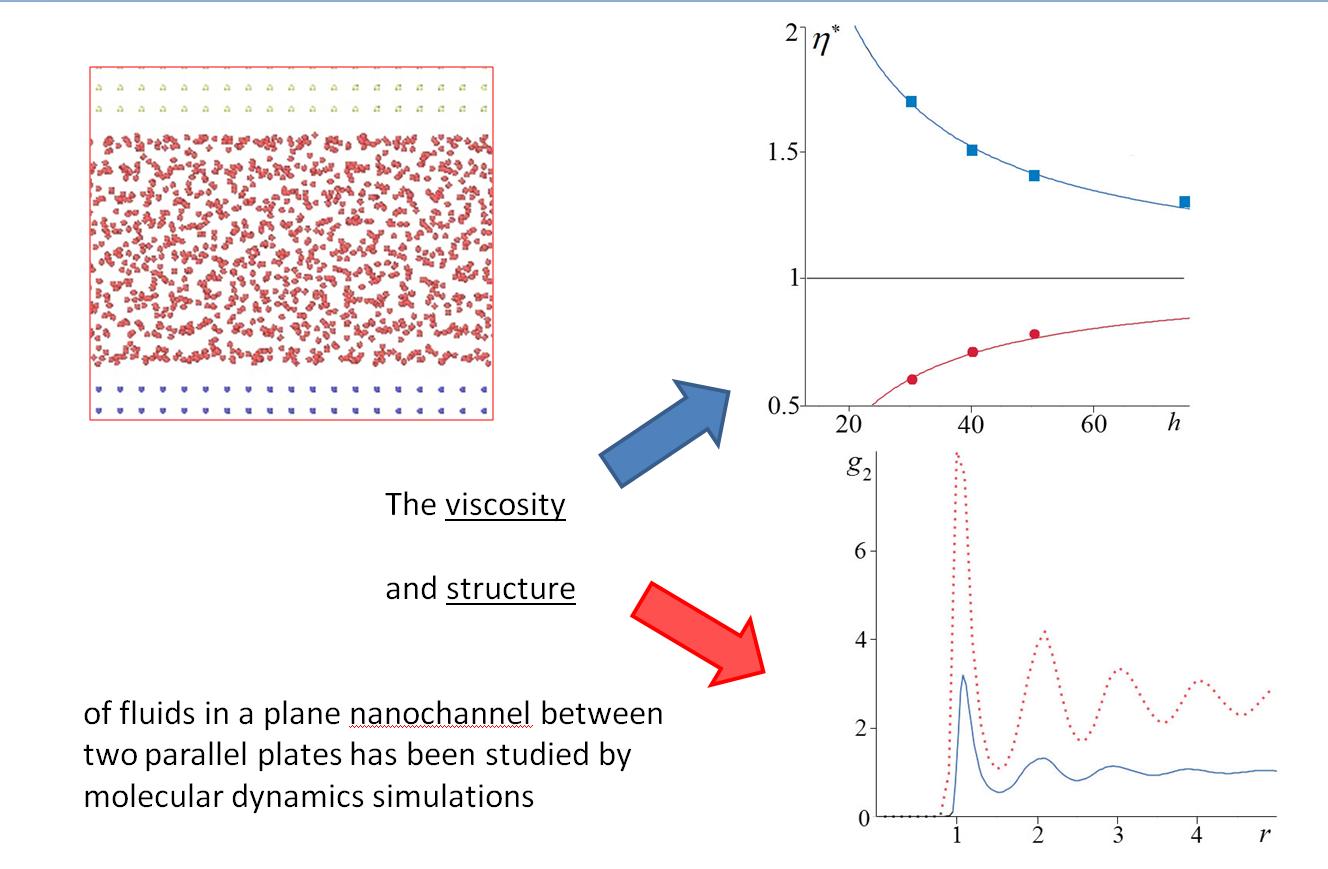NANOSYSTEMS: PHYSICS, CHEMISTRY, MATHEMATICS, 2018, 9 (3), P. 349–355
Molecular dynamics simulation of fluid viscosity in nanochannels
V. Rudyak – Novosibirsk State University of Architecture and Civil Engineering, Leningradskaya 113, Novosibirsk, 630008, Russia; valery.rudyak@mail.ru
A. Belkin – Novosibirsk State University of Architecture and Civil Engineering, Leningradskaya 113, Novosibirsk, 630008, Russia; a_belkin@ngs.ru
The viscosity of fluids in a plane nanochannel has been studied by molecular dynamics method. The effective viscosity coefficient was determined using the fluctuation-dissipation theorem derived previously by the authors from the nonequilibrium statistical theory of fluid transport in confined conditions. It has been found that the fluid viscosity in a nanochannel is strongly dependent on the interaction potential between the fluid and channel wall molecules. In particular, increasing the depth of the potential well of this interaction leads to an increase in the viscosity. At the same time, if the depth of the potential well is small, the fluid viscosity in a nanochannel may be even lower than its viscosity in an unconfined (bulk) system. Thus, the fluid viscosity in a nanochannel and hence the channel flow resistance can be varied by changing the material of the nanochannel walls.
Keywords: nanochannel, confined system, viscosity, molecular dynamics, correlation functions, nonequilibrium statistical mechanics.
PACS 47.61.-k, 47.10.-g
DOI 10.17586/2220-8054-2018-9-3-349-355
